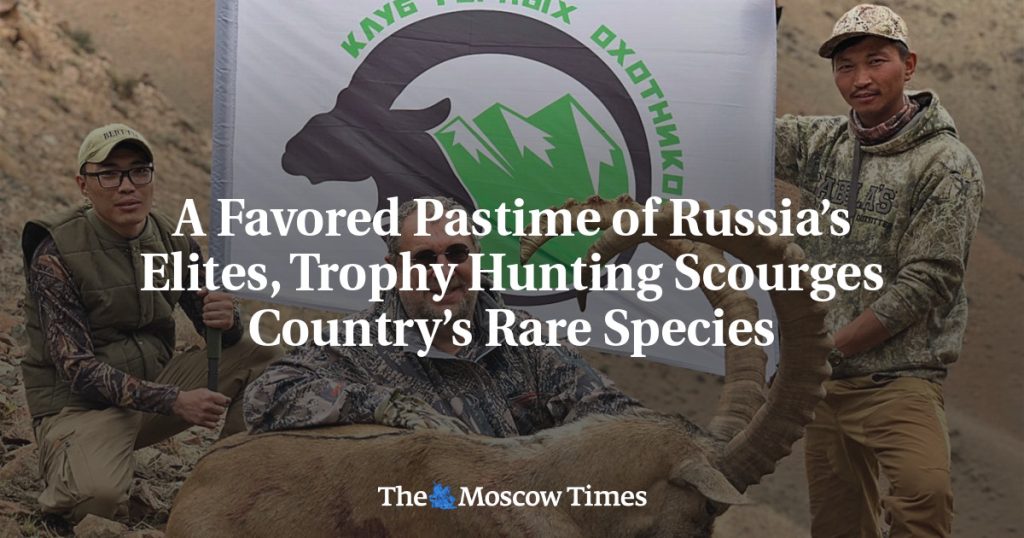The practice of trophy hunting among VIP hunters in Russia, including senior officials and wealthy businessmen, is on the rise, posing a threat to the survival of rare species. Due to its long-standing association with elite status in Russian culture, hunting with high-ranking officials is prestigious. Some hunters engage in trophy hunting of endangered animals, sometimes illegally or semi-legally. Government oversight of hunting regulations in Russia has been loosened in recent years, allowing for the allocation of protected areas for hunting purposes, which can have disastrous consequences for ecosystems.
The Russian Club of Mountain Hunters advocates for legal trophy hunting of hoofed animals in the wild, including species listed in Russia’s Red Book of threatened species. Trophy hunting is a controversial practice that is legal in many countries but faces criticism for its impact on conservation efforts. Proponents argue that hunting helps maintain ecosystem balance and can fund nature conservation, but environmentalists warn that trophy hunting can disrupt ecosystems by eliminating large animals and harming biodiversity.
Hunting in Russia can lead to unpredictable consequences when combined with other factors, such as the encroachment of Siberian tigers into villages due to a lack of prey in the forests. Poor governmental oversight, unreliable data, and a shortage of hunting inspectors contribute to the challenges facing Russia’s wildlife management. While some individuals exploit hunting grounds for personal enjoyment, others point to anti-Western sentiments as a reason for threats to Russia’s wildlife, criticizing foreign firms that organize hunting trips in the country.
Despite being a popular destination for foreign hunters due to its vast natural habitats and vibrant wildlife, Russia has seen a decline in visits by foreign hunters due to the Covid-19 pandemic and the invasion of Ukraine. The reduction in foreign hunters has not alleviated concerns about poor governmental oversight of wildlife in Russia, with critics highlighting the risks posed by poaching and domestic trophy hunting. Authorities may only react to conservation issues once catastrophic consequences begin to unfold, indicating the need for improved regulation and protection of rare species in the country.
In conclusion, the practice of trophy hunting in Russia, particularly among VIP hunters, poses a significant threat to the country’s rare species and ecosystems. While some argue that trophy hunting can support conservation efforts, critics point to the ethical concerns and environmental impact of the practice. Poor governmental oversight and a lack of regulation contribute to the challenges facing wildlife management in Russia, with experts warning of the detrimental effects of unchecked hunting activities. Efforts to address these issues, such as tighter regulations and increased protection of endangered species, are crucial to ensure the long-term survival of Russia’s wildlife.


